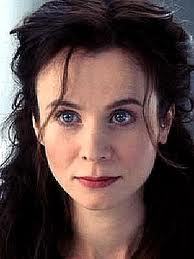


In those and countless other films and TV series, like the recent Chernobyl, she’s proven herself a leading lady with formidable character-actor chops, eminently capable of commanding the spotlight no matter the particular role at hand. Since her star-making turn in Breaking the Waves, she’s carved out a career marked by both the blockbuster-y and the intimate, lending her considerable talents to projects as varied (and exceptional) as Robert Altman’s Gosford Park, Paul Thomas Anderson’s Punch-Drunk Love, Charlie Kaufman’s Synecdoche, New York, and John Hillcoat’s The Proposition. That Watson is great in Too Close is par for the course. Struggling to understand a distraught woman who, it turns out, understands her better than she does herself, Robertson is a figure of multifaceted suffering and dissatisfaction, and Watson’s performance is the anchor for what turns out to be a suspenseful investigation into issues of class, sex, marriage, parenthood, and middle-aged ennui. Emma Robertson, a forensic psychiatrist tasked with assessing a wife and mother named Connie (Denise Gough) who’s standing trial for driving herself and her children off a bridge in an attempted murder-suicide, Watson adds another sterling credit to her résumé, embodying the character with an empathetic discontent and instability that grounds this tale of female trauma. It’s been 25 years since Emily Watson burst onto the international scene with Breaking the Waves and, as confirmed by her latest, the three-part AMC+ dramatic thriller Too Close, time has done nothing to diminish the acclaimed British actress’ magnetism.Īs Dr.


 0 kommentar(er)
0 kommentar(er)
